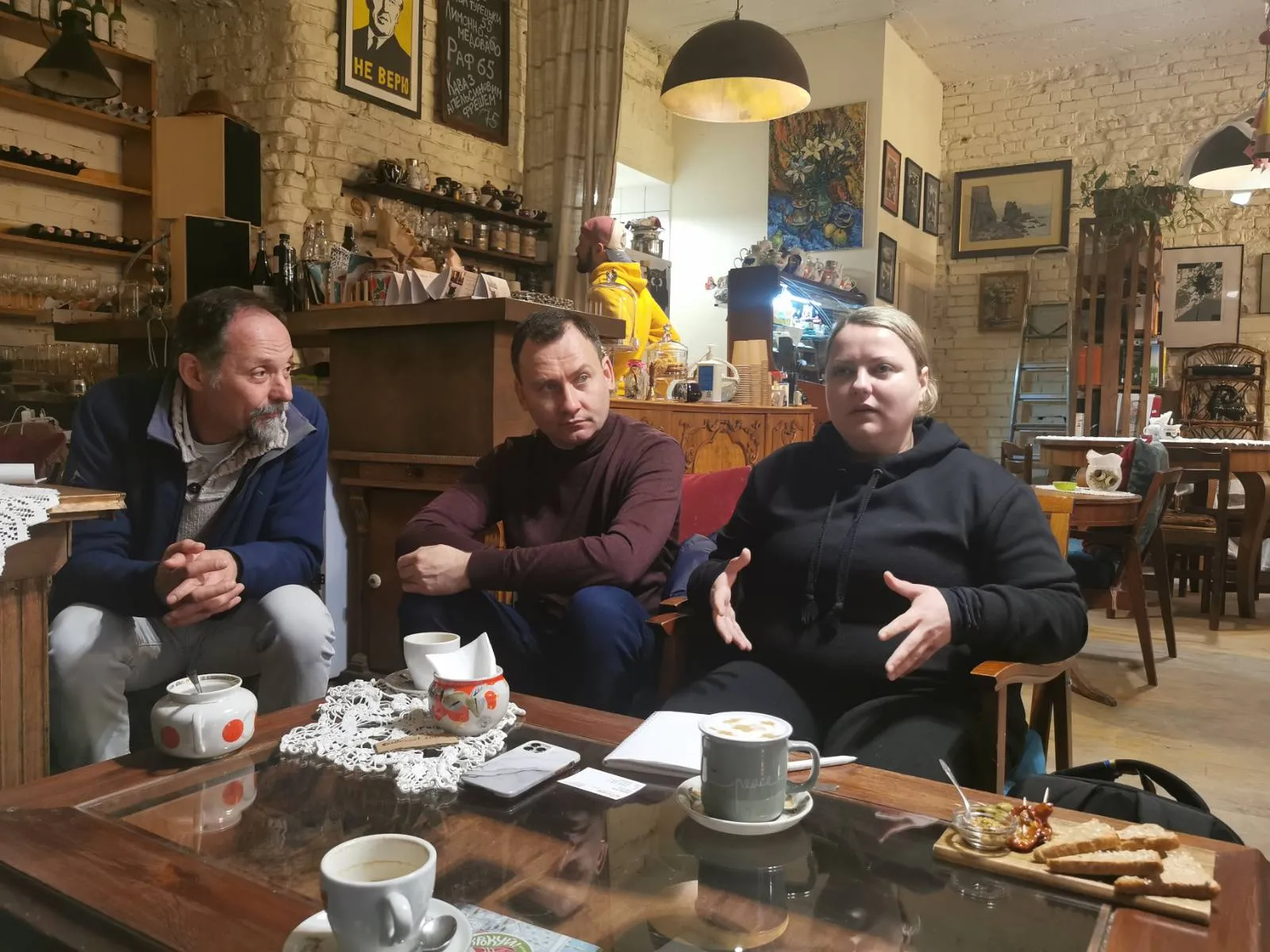Hot meals for thousands
She cooperates with restaurants in Kiev and, with other volunteers, delivers up to 2,000 meals a day. “We help those who have survived. People start crying when we bring them a hot meal because they have nothing left.” In Kiev itself, she has already helped up to 400 people, and in the villages and suburbs, more than 1,000.
Lyudmyla considers what is needed every day. “I need to find the potatoes, I need to find a place to prepare the food, I need something to transport the food in, and I need gasoline for the cars. Every day I think about whether to buy gas for two cars or one. Two cars can feed more people, but if I save the gas for one car, I have more money for more meals.”
In the meantime, many of those who have fled and been displaced contact her and report that they have been out of contact with their loved ones for several days. They have either had their cell phones taken away or are living in areas where there is no electricity or network connection. One young woman sent Lyudmyla the last known coordinates of her mother. Lyudmyla could not travel to the location for four days because every access route was full of mines. When she found the mother, Lyudmyla directly recorded a video for her daughter. Then she loaded a trunk full of food, generators, chargers, a radio, a cell phone, gasoline, and other things the mother needed.
I’m not a heroine. It’s not an adventure. I’m always afraid. Every day could be my last.
“I asked the mother what she would like to eat, and she asked me if I had any cookies. I then recorded a video of the mother talking directly to her daughter. I am the only bridge between families.” Lyudmyla brought her the cookies as well. Lyudmyla gets the radios because she often talks to people in these areas who have been cut off from any information for several weeks. “A father once asked me if Kyiv was still standing. He was told that Kyiv had fallen,” Lyudmyla says.
Last dignity for the dead
Not all of those she finds have survived. Lyudmyla bought 1,000 body bags to bury the dead with dignity. Cemeteries were under attack until recently. Factories that made coffins were destroyed. Every day she writes in her notebook the names of those she wants to find and to whom she brings medicine or food. “Next to each person I find, I write ‘alive.’ I need that so I can see that something good happened today and that person doesn’t need a body bag.”
Lyudmyla goes to the contested areas every day. Every day her life is in danger. “It was my decision to stay. As a nurse, I have skills that are needed. My friends tell me to get to safety, but I can’t imagine leaving these people behind. If you find people who have been hungry for a week, I can help them,” Lyudmyla reports.
What drives Lyudmyla? “I’m not a heroine. It’s not an adventure. I’m always afraid. Every day could be my last. We need help. We are dying here” she said. She is one of many Ukrainians who, as volunteers, help many affected people every day. She hopes that this strong cohesion will continue through the war. “For the future, I wish for peace. For myself, I wish to have my own home again someday.”


